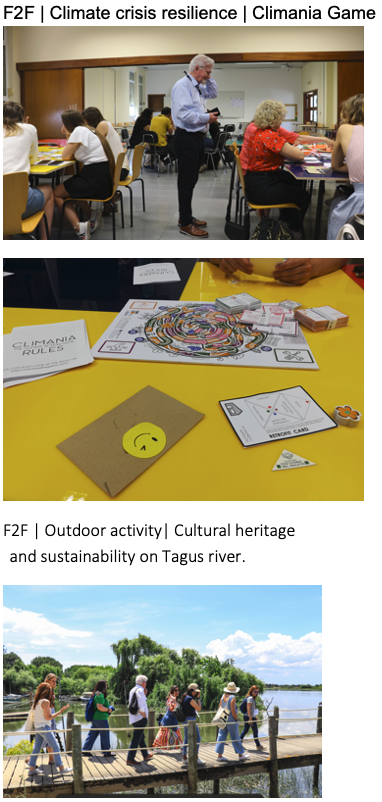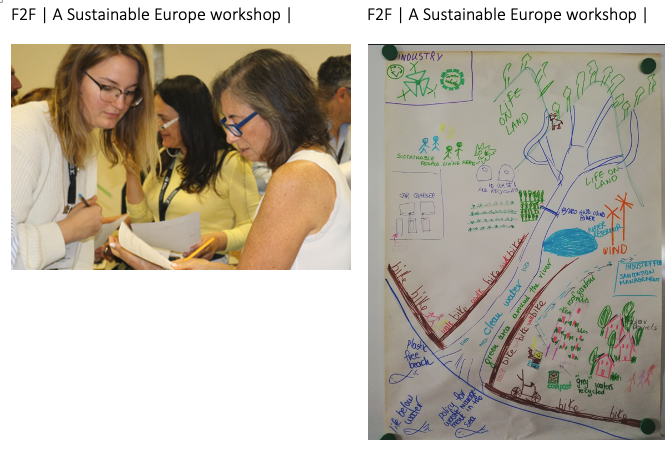Site blog
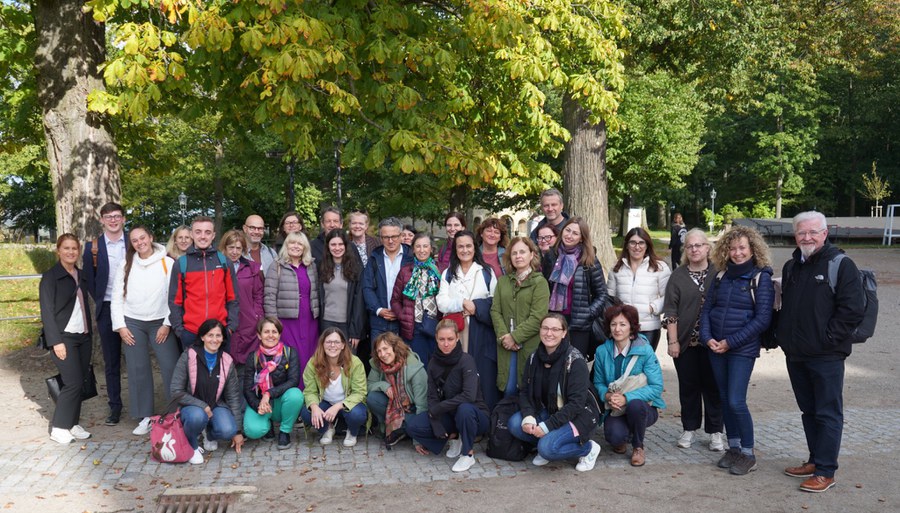
The third and final TAP-TS Summer School took place as an autumn academy from September 27 to October 1, 2024 under the motto "Beyond borders: Whole school approaches to sustainability education for secondary level educators". The event brought together secondary school teachers, principals and teacher educators from all over Europe to discuss education for sustainable development "beyond borders" from the perspective of the Whole School Approach. This approach to education for sustainable development was highlighted using the example of the Friedrich-Schiller-Gymnasium Pirna (FSGP) using a mosaic principle developed by the school itself. Other interdisciplinary pedagogical approaches were discussed in other innovative workshops.
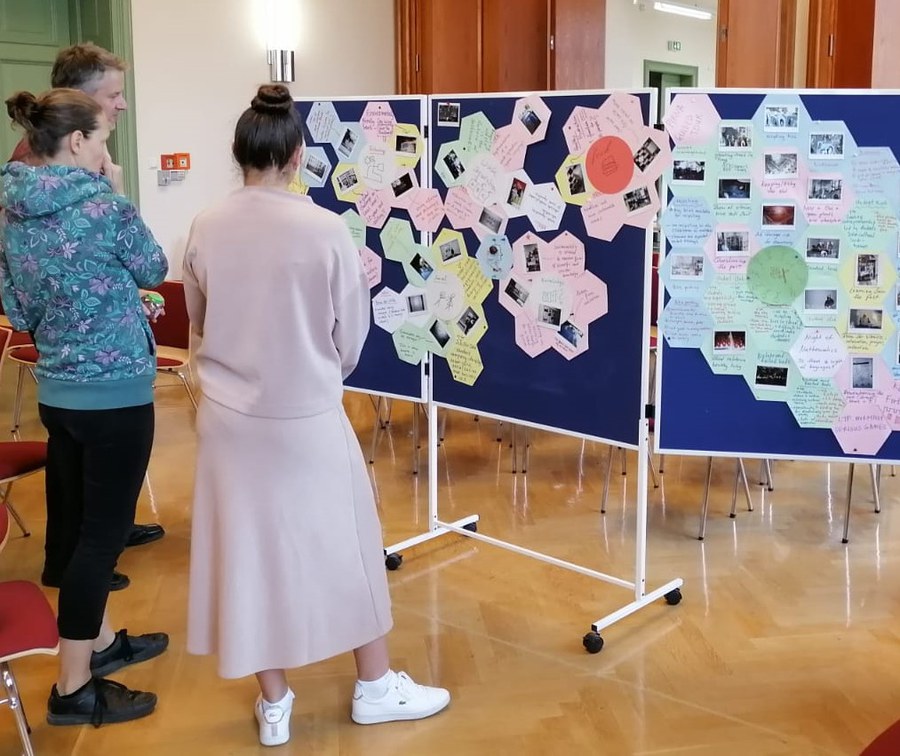
The Autumn Academy took place at Friedrich-Schiller-Gymnasium Pirna, the host of the five-day face-to-face event. The school directed by Dr Kristian Raum is the partner school in the TAP-TS consortium and plays a leading role in the development of holistic school concepts. It is located close to the Czech-German border and known as a bilingual school and is committed to democratic, anti-racist and sustainable education. In addition to the events at the school, workshops were also held at extracurricular learning locations. Activities were carried out in the region that offered practical experience in sustainability education and insights into this ecologically and culturally unique border region.
Participants critically examined various TAP-TS learning and teaching materials in different teaching contexts. In addition to interactive workshops and reflection sessions on whole-school approaches, there were also workshops on sustainability education and decolonization, entrepreneurial education, digitality and serious games. The program of the TAP-TS Autumn Academy included the following workshops, which were based on the five of the seven Learning Teaching Packages (LTP) developed in the TAP-TS project:
- "Whole School Approach at FSG: a mosaic"(LTP 6):
- "From Colonialism to Code. Decolonizing perspectives on the relationship between sustainability and digitality"(LTP 2):
- "Language beyond borders: Multilingual education and sustainability" (LTP 1):
- "Places Of Learning And Resources" (POLAR) (LTP 6):
- "Building climate crisis resilience through serious games" (LTP 4)
- "Critical media education: dealing with climate disinformation" (LTP 4)
- "Sustainable entrepreneurship education" (LTP 7)
The LTPs are available for download on the Moodle platform TAP-TS as free Open Educational Resources. As TAP-TS enters its final year, the focus is shifting to the visualization and dissemination of project materials and findings. As part of this work, the ZLSB at TU Dresden will host a multiplier event for European teachers and teacher trainers in June 2025.
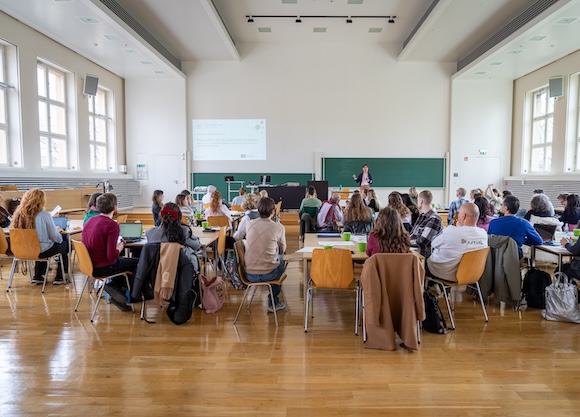
Active learning Event 3 – learning together for sustainability education
From 21 to 24 March, over 50 international student teachers, school teachers and teacher educators from 12 European countries came to TU Dresden, University of Technology to explore sustainability education through a wide range of interactive workshops, simulation games and discussions. The three-day face to face event was part of the hybrid course “Sustainable Futures Education: digitality, entrepreneurship, decolonisation and serious games at secondary level” which also included 3 webinars and self-study activities on the TAP-TS Moodle platform.
Pedagogical approaches included collaborative learning in virtual environments, entrepreneurial simulations, transformative learning through games and educational museum activities at extracurricular learning venues. Various aspects of sustainability and education were examined in working groups. The working group on entrepreneurship dealt with the positive mindset that goes hand in hand with the entrepreneurial spirit. "It enables young people to overcome disadvantages, mistakes and problems in life. They learn to overcome challenges, be decisive and take responsibility for their behaviour and activities," explains Dr. Eszter Csepe-Bannert from TAP-TS partner CorEdu. The Digitalisation working group looked at the fundamental environmental, social and economic changes brought about by advancing digitalisation, the Decolonisation working group explored the link between climate change and exploitative and capitalist/colonial ideologies from Europe. In the Games & Simulations working group, participants learnt about the potential of games as an educational tool for disaster prevention, resilience and skills development.
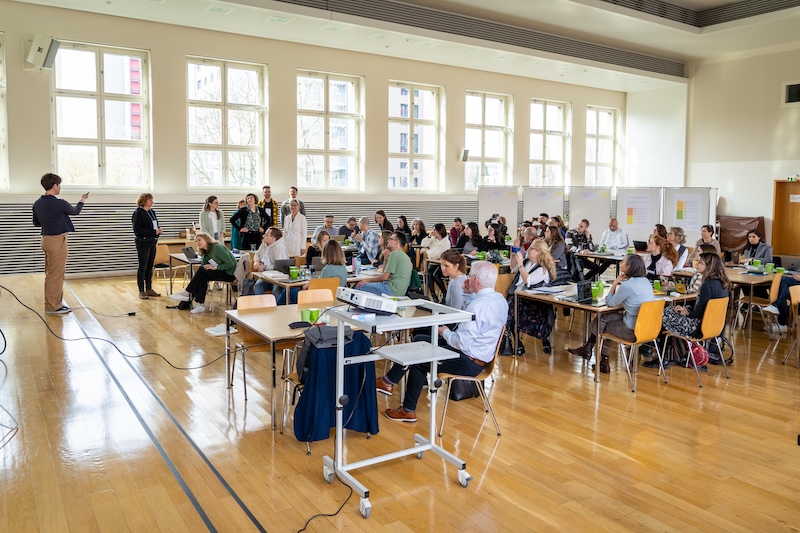
According to the evaluation team, the format was a success: "Participants felt the event was well balanced between theoretical & practical parts and the workshops were consistent without being too similar". It was also praised that many of the activities were designed to allow participants to network and get to know each other. In their feedback, the guests particularly emphasised the high practical relevance of the activities and their added value for lively, motivating lessons.

Teacher education staff and students from TU Dresden joined an international group of European educators in Santarem, Portugal at the beginning of June for the face to face part of the Active Learning Event ‘A sustainable Europe’. The event was part of Teacher Academy Project-Teaching Sustainability (TAP-TS), one of 11 inaugural Erasmus + Teacher Academies running from June 2022 until July 2025. TAP-TS aims to strengthen the sustainability education competences of primary and secondary student teachers, teacher educators and teachers through the co-production, piloting and use of learning and teaching materials, and participation in international courses and workshops as part of a growing community of practice of sustainability educators. During the first year of the project (June 2022 to July 2023) the main focus has been drafting learning and teaching materials, and piloting these locally and internationally, through a range of online, hybrid and face to face events.

Active Learning Event (ALE2), which took place from may the 8th until June 3rd , was structured as a hybrid event with three weeks of online work (including weekly webinars and self-study), followed by three days of Face-to-Face workshops in Polytechnic Institute of Santarém (PIS). The course was targeted at secondary level educators, from across curriculum subjects. In total, 42 participants enrolled for the online course, and 28 attended the face to face sessions. During this ALE, units and activities from Learning Teaching Packages “A sustainable Europe” and “Climate Crisis Resilience” were piloted. The first online week drew material from unit 1.
‘Sustainability and me’ and engaged participants with foundational sustainability concepts, values and thinking skills. The second online week drew material from unit 2. ‘a sustainable Europe’, with a focus on European policies and actions for sustainability. The third online week drew material from unit 3. ‘linguistic and cultural diversity for a sustainable Europe’, with a focus on multilingual and anti-racist education and language across the curriculum.
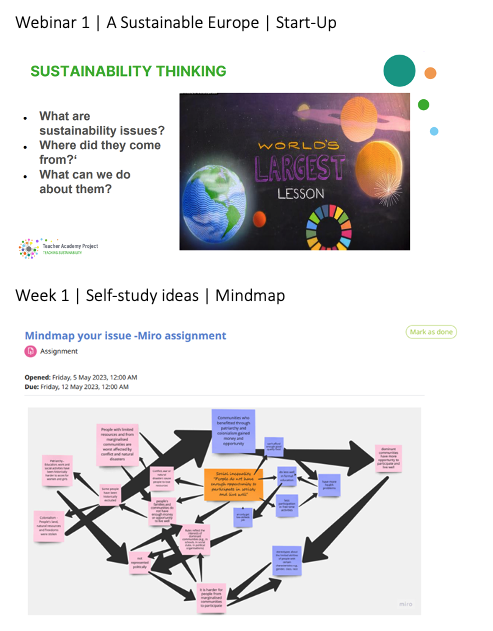
The 3-day face to face course was an important opportunity to bring participants together to build our community of practice and to further engagement with and provide feedback on course materials. In addition, we explored the role/s of education for sustainability and the European commission’s sustainability Competence Framework GreenComp (Bianchi et al, 2021). Apart from that, participants also enjoyed a tour of the inspirational education facilities at PIS, an outdoor education activity exploring the Tagus river (a site of biodiversity and cultural importance), and a plenary session with an invited speaker. In the evenings, the group enjoyed visits to local restaurants!
